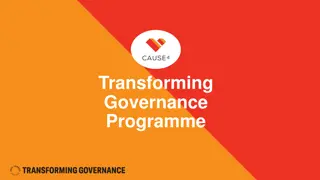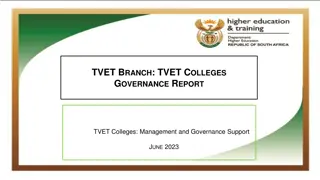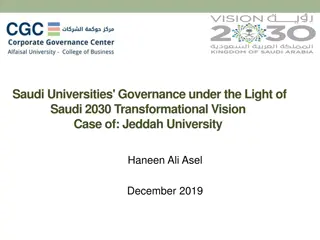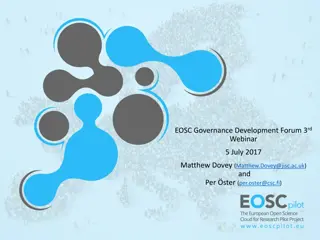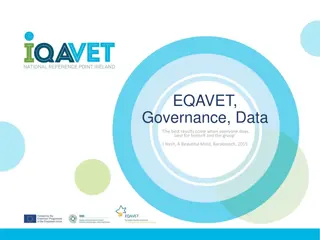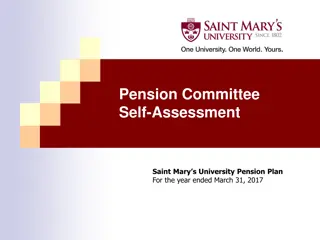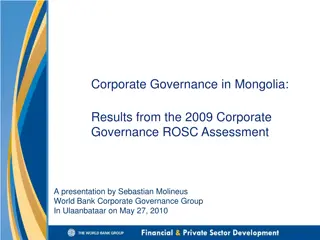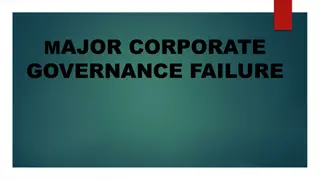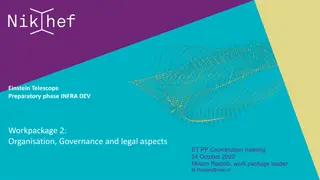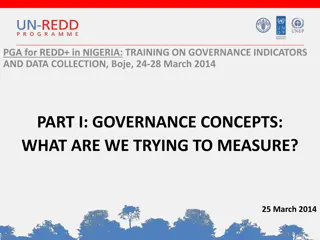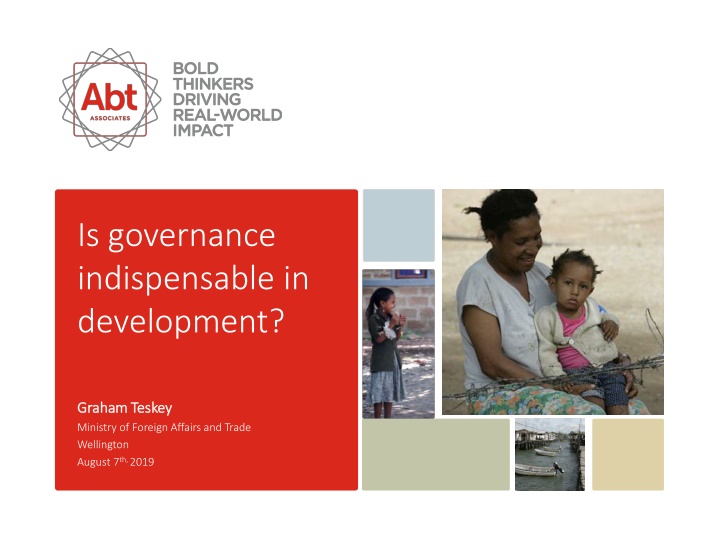
Importance of Governance in Development: Insights by Graham Teskey
Explore the significance of governance in development through the perspectives shared by Graham Teskey. Understand the evolution of governance, differing contemporary emphases, and definitions shaping political, economic, and administrative authority in managing a nation's affairs.
Download Presentation

Please find below an Image/Link to download the presentation.
The content on the website is provided AS IS for your information and personal use only. It may not be sold, licensed, or shared on other websites without obtaining consent from the author. If you encounter any issues during the download, it is possible that the publisher has removed the file from their server.
You are allowed to download the files provided on this website for personal or commercial use, subject to the condition that they are used lawfully. All files are the property of their respective owners.
The content on the website is provided AS IS for your information and personal use only. It may not be sold, licensed, or shared on other websites without obtaining consent from the author.
E N D
Presentation Transcript
Is governance indispensable in development? Graham Teskey Graham Teskey Ministry of Foreign Affairs and Trade Wellington August 7th, 2019
Outline 9 slides The election of Barak Obama remember him? The emergence of governance in development Some definitions Governance: differing views Becoming a cynic The answer!
The 1990s Two drivers 1. Intellectual: Douglass North for his work on institutions and the rules of the game ; an antidote to the reification of neo- classical economics 2. Practical:The failure of first best economics , structural adjustment, the Washington Consensus, the state as impartial arbiter ..the mismatch between what was happening on the ground and what the conventional wisdom was telling us
The emergence of governance and institutions Learning to think politically: getting to grips with institutions; the rules of the game 1990s WDR 1997 The State in a Changing World Phase 1 Putting the thinking into practice: PEA early 2000s DFID Drivers of Change Phase 2 Politically smart, locally led development: Doing Development Differently now Thinking and Working Politically (TWP) Phase 3 Abt JTA | pg 5
Some definitions Governance is the exercise of political, economic and administrative authority necessary to manage a nation s affairs The exercise of economic, political, and administrative authority to manage a country s affairs at all levels. It comprises mechanisms, processes, and institutions through which citizens and groups articulate their interests, exercise their legal rights, meet their obligations, and mediate their differences Abt JTA | pg 6
Differing contemporary emphases Governance as just another sector: PFM, anti-corruption, law and justice etc Governance as liberal democracy: promoting a particular form of government (through elections, parliaments/assemblies, political parties etc) Governance as improving aid effectiveness: building the capacity and effectiveness of the state: 1. the institutions and organisations that make up the state 2. state-building itself Governance as a way of thinking about development: about power: how it is used, in whose interests and how it is reproduced. It is about the rules of the political / economic game
Governance requires you to become a cynic But at its best, cynicism is a greater force for progress than optimism. The optimist underestimates how difficult it is to achieve real change, believing that anything is possible and it's possible now. Only by confronting head Only by confronting head- -on the reality that all progress is going to be obstructed by vested interests and progress is going to be obstructed by vested interests and corrupted by human venality can we create realistic programmes corrupted by human venality can we create realistic programmes that actually have a chance of success. that actually have a chance of success. Progress is more of a challenge for the cynic but also more important and urgent, since for the optimist things aren't that bad and are bound to get better anyway on the reality that all Julian Baggini, In Praise of Cynicism , 11 July 2013
So is governance indispensable? It all depends on what you understand by governance. If you consider governance to be just another sector, then governance sectors may help you achieve your own aims (better financial management, less corruption) If you consider governance to be liberal democracy then the evidence is clear it is absolutely not indispensable. The evidence shows that countries get rich then they get democratic, not the other way around. Here governance (ie liberal democracy) may be intrinsically worthwhile of itself, but it is not instrumental in poverty reduction and economic growth If you consider governance to be state-building, then it is all about governance. And nothing else. Francis Fukuyama has written two volumes over almost 1,000 pages explaining how different combinations (and sequences) of democratic accountability, the rule of law, and state capacity have led to modern, rich, high-performing liberal democracies. (And his conclusion for aspiring MICs? There is no pre-defined route. Each country has to plot its own path. Great eh, after 1,000 pages .) If you consider governance to be a way of thinking about development (the rules of the game, power, authority) then it is indeed indispensable. All change generates winners and losers and often the losers will fight back, as the 44th President found out ..

